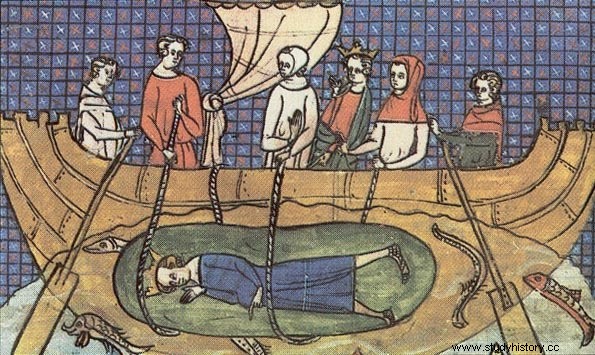The great Aristotle (384 BC – 322 BC), the philosopher and scientist of Ancient Greece, already mentioned the use of a kind of inverted metal bell submerged in the water that the "divers" use to breathe the air that was trapped inside. Legend has it, because it is a legend, that his most outstanding disciple, Alexander the Great After conquering half the world, he was interested in exploring the depths of the ocean. So, he dove into the sea encased in “a very fine vessel made entirely of white glass “And he found a sea monster that took three whole days to traverse its length. Logically, this legend only serves to extol the figure of one of the greatest conquerors in history.

What is no longer a legend is that the Romans created the first body of professional divers:the urinatores . Urinator derives from archaic Latin urinare (diving, immersion in water). It was an army corps that, in addition to the rigorous tests and normal combat training, received specific training for its aquatic and underwater operations. Among their tasks in times of war were sabotage operations (cutting the anchor or moorings, running ships aground by placing underwater obstacles...), transporting small objects, espionage and even as couriers.
To counter the attack of the urinators Defense measures were established such as closing the ports with underwater nets so that they would be trapped. In times of peace they were dedicated to the rescue of wrecks and apnea competitions.

And, to make matters worse, they also had some particular diving goggles:a sponge in the mouth impregnated with oil. They were biting the sponge to release the oil and create a screen in front of them that would improve visibility, since the refractive index of oil is very similar to that of the human eye.
